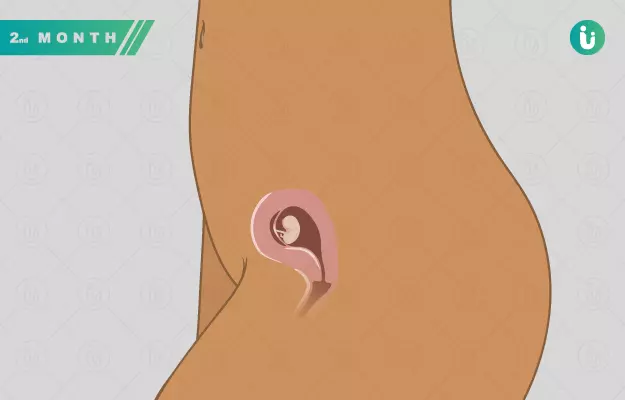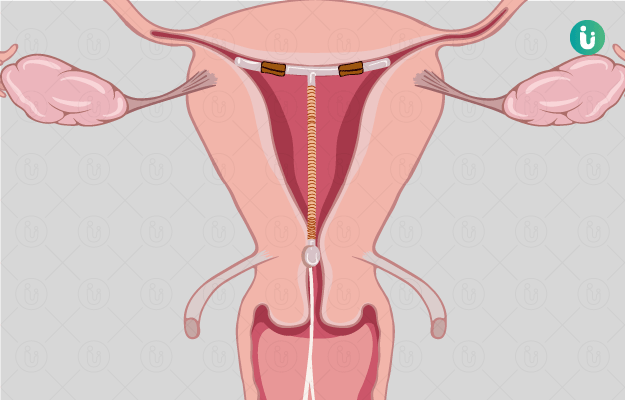It is important to take care of your diet during pregnancy to meet the growing demands of the body and to avoid nutritional deficiency. Since only mild weight gain of 1 to 2 kilograms is expected during the first trimester (first three months of pregnancy), a major increase in the calorie intake is not recommended. You can continue to have the normal daily calories, that is 1800 or 2000, which you were taking pre-pregnancy. This does not mean you can ignore your diet and continue eating the same way. Following is a guide to help you eat during the second month of pregnancy.
Have a balanced diet
This is the most important recommendation to be made during pregnancy. Including the right proportion of proteins, carbohydrates, fats, minerals and vitamins is the best thing you can do to avoid nutritional deficiencies and fatigue.
(Read more: Vitamins and minerals you need during pregnancy)
It is best to include a lot of fresh fruits and vegetables, but, it is important to wash them thoroughly before consumption to prevent the risk of infections.
A plant-based diet is safer during pregnancy, but, you can also enjoy non-vegetarian foods like chicken, well-cooked meat and certain fish varieties like salmon and trout. What not to eat among these foods will be discussed in the sections below.
Folic acid during pregnancy
Folic acid or vitamin B9 is quintessential during pregnancy to prevent embryonic defects, particularly those associated with the neural tube (which forms the brain and spinal cord).
It is advisable to take folic acid supplements to avoid this, but, that requires a physician’s consultation, who will most likely prescribe a 400 mcg supplement. Dietary intake of folic acid can be ensured by eating more leafy greens, citrus fruits (oranges and lemons) and legumes and sprouts in your diet.
Increase fibre in your diet
If you are constantly suffering from digestive issues like constipation during the second month of pregnancy, it is advisable to increase the intake of fibre-rich foods like whole grains, dry fruits, nuts and cereals.
Fibres have time and again proved to be beneficial in the prevention of constipation. Just make sure to drink more water.
(Read more: Constipation during pregnancy causes)
Drink more water
Regardless of the fibre intake, simply drink more water. More than the usual 8 glasses you did. This will help in keeping you energised and it will also aid in better digestion. Also, it reduces the risk of preterm labour.
(Read more: How much water to drink in a day)
Include more iron in your diet
Iron consumption is very important during pregnancy to ensure sufficient blood formation, which is the only source of nutrition for the foetus. This will also avoid iron deficiency anaemia and foetal malformations. While increasing the consumption of iron from plant sources like green leafy vegetables and nuts, it is essential that you also increase the consumption of vitamin C to facilitate the absorption of iron.
(Read more: Iron deficiency causes)
Foods to avoid
Now you know, what to eat during the second month of pregnancy, but are there any foods you should avoid? Definitely.
You must avoid the consumption of raw, uncooked and cold processes meats, like pepperoni, salami, chorizo, minced meat and sausages. Uncooked meat is a host of parasites, which can cause a serious infection called toxoplasmosis. For similar reasons, you must consume only pasteurised milk and avoid drinking milk before boiling sufficiently.
Other than this, the consumption of seafood and sushi must also be limited since these are also eaten in the raw form. You must limit the consumption of liver meat and tuna during the second month. Certain types of cheese, particularly soft cheese and raw or partially cooked eggs must also be avoided.
You are advised to not take any supplements unless prescribed so by your doctor. Multi-vitamin and fish oil supplements must be particularly avoided.
Concerning beverages, it is advisable to reduce your caffeine consumption since it is associated with low birth weight. Consumption of green tea and herbal tea must also be kept minimum since they have not been thoroughly researched. In fact, an unprescribed dose of any ayurvedic or herbal products must be completely refrained from during the second month of pregnancy.
Eat more often
To keep morning sickness during the second month at bay, you must increase the frequency of your meals, that is, you should eat more often. Divide three larger meals into small 5 to 6 small meals to be eaten throughout the day. This will surely help in the avoidance of nausea.
(Read more: Foods to eat and avoid during pregnancy)










































